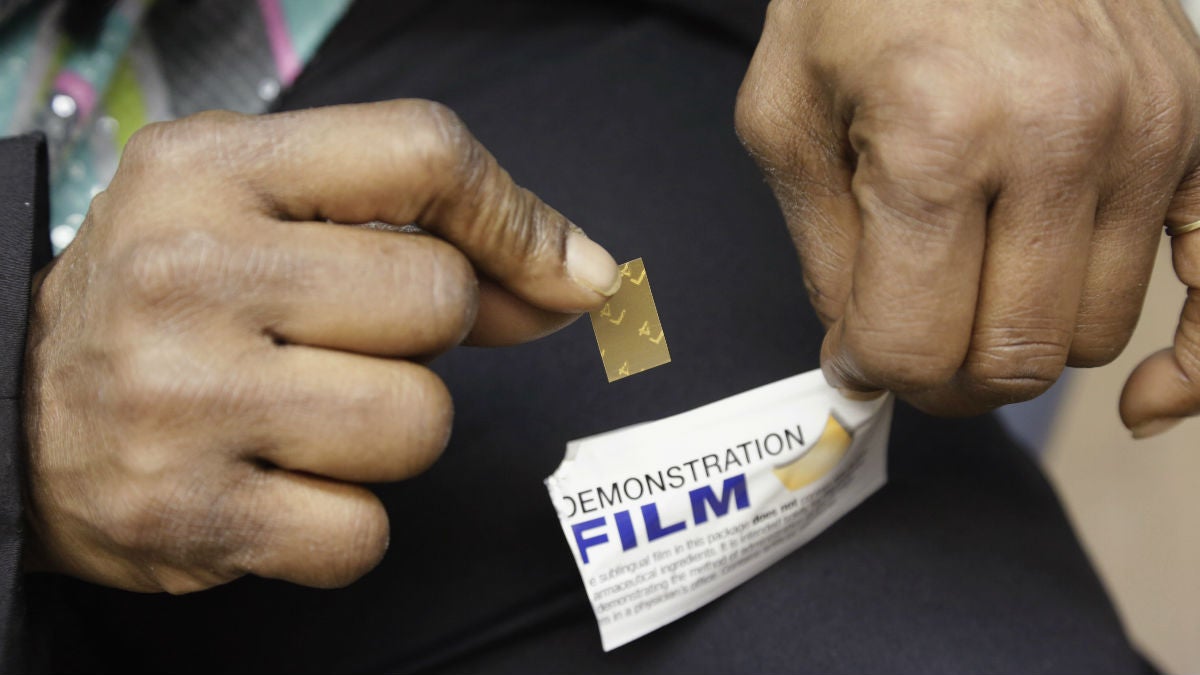Delaware joins lawsuit against Suboxone makers

In this file photo
Delaware Attorney General Matt Denn joined his counterparts in 34 other states filing an antitrust lawsuit against the makers of the opioid addiction treatment drug.
The lawsuit filed in U.S. District Court in Pennsylvania accuses the maker of Suboxone of conspiring to switch the drug from tablet form to a film that dissolves in the mouth, in an effort to prevent or delay generic alternatives. Reckitt Benckiser Pharmaceuticals is the company which makes the opioid treatment drug. The company now goes by the name Indivior.
“Deaths from opioid abuse remain a significant problem in Delaware,” said AG Matt Denn.
Delaware has the ninth highest drug overdose rate in the country, Denn said. He’s concerned about the cost of treating opioid addiction as a major challenge to reducing that overdose rate. “Our concern is heightened when the result is artificially heightened prices for a drug used to help address this critical problem in our state.”
Suboxone was first introduced in tablet form in 2002. It had exclusivity protection for seven years before a generic version would be allowed to enter the market. According to the lawsuit, before that seven year period ended, Reckitt worked with MonoSol Rx to create a new version of the drug. That new version was a dissolvable film, similar to a breath strip that would be placed under the tongue.
The lawsuit accuses Reckitt and MonoSol of converting the market away from the tablet and towards the film version of the drug. The companies are accused of moving the market via marketing, price adjustments and other methods. Eventually, the majority of the Suboxone prescriptions were being written for the film instead of the tablet. Once that happened, Reckitt removed the tablet from the market.
The lawsuit accuses Reckitt of forcing consumers to pay artificially high monopoly prices since 2009, when the Suboxone exclusivity period would have ended allowing cheaper generics on the market. Since that time, annual sales of Suboxone have topped $1 billion, the lawsuit claims.
The suit seeks an order to end the anti-competitive practices and to restore competition. The lawsuit also seeks “appropriate relief” for consumers and the states.
WHYY is your source for fact-based, in-depth journalism and information. As a nonprofit organization, we rely on financial support from readers like you. Please give today.





